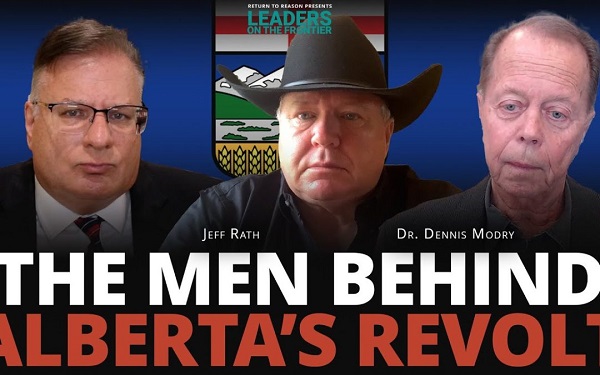Podcasts
Mother of Likely Murdered OpenAI Whistleblower Reveals All, Calls for Investigation of Sam Altman

From Tucker Carlson News on Rumble
Suchir Balaji worked as an engineer for Sam Altman building AI, until he decided that Altman was committing crimes. Balaji became a whistleblower, and soon after was found dead in his apartment. California authorities claim it was suicide. Crime scene photos clearly show a murder. Balaji’s mother, Poornima Ramarao, tells the most shocking story we’ve heard in a long time.
Business
Canada should already be an economic superpower. Why is Canada not doing better?

From Resource Works
Tej Parikh of the Financial Times‘s says Canada has the minerals but not the plan
Tej Parikh is the economics editorial writer for The Financial Times, a British daily newspaper. He joins our Stewart Muir for a Power Struggle interview. And we include in the following report some points from a guest column by Parikh in Canada’s National Post, which carried the headline ‘How Canada can unlock its economic superpower potential.’
Parikh begins the Power Struggle interview with this: “There’s an enormous economic potential here, very much the same geographic advantages that have underpinned America’s economic emergence over the last 100 years. . . . Given everything we understand about the advantages that countries need to grow, why is Canada not doing better economically?” He added: “When you break it down and you look at why income per capita in Canada has perhaps not increased as fast as we might expect on the basis of those advantages, it really kind of breaks down to three components. One is investment, so how much capital goes into the country?
The second is labour, and not just the amount, the size of the workforce you have, but how well you utilize the workforce. And then the third component is something that economists like to call a total-factor productivity, which is essentially your innovative ability and your ability to bring together capital and people. “And when you look at Canada as opposed to other large economies . . . you begin to see that actually there are a lot of restrictions in Canada, not just because of its vast geography but because of regulation, that it actually can’t combine its capital and labour as productively as it could.
“It’s about creating those supply chains and critical minerals that the Western world is currently short of. Given it (Canada) has these vast raw material resources, there is a massive scope for it to become even more integrated into Western supply chains in particular and to become a supplier of these things.” From Parikh’s National Post column: “The country is energy independent, with the world’s largest deposits of high-grade uranium and the third-largest proven oil reserves. It is also the fifth-largest producer of natural gas.Canada boasts a huge supply of other commodities too, including the largest potash reserves (used to make fertilizer), over one-third of the world’s certified forests and a fifth of the planet’s surface freshwater. Plus, it has an abundance of cobalt, graphite, lithium and other rare earth elements, which are used in renewable technologies. “But the nation has lacked the visionary leadership and policy framework to capitalize on its advantages.”
Watch the full interview here:
Alberta
Why Some Albertans Say Separation Is the Only Way

From the Frontier Centre for Public Policy
-

 Alberta2 days ago
Alberta2 days agoAlberta Provincial Police – New chief of Independent Agency Police Service
-

 Business2 days ago
Business2 days agoWhy it’s time to repeal the oil tanker ban on B.C.’s north coast
-

 International2 days ago
International2 days agoCBS settles with Trump over doctored 60 Minutes Harris interview
-

 Energy2 days ago
Energy2 days agoIf Canada Wants to be the World’s Energy Partner, We Need to Act Like It
-

 Alberta2 days ago
Alberta2 days agoPierre Poilievre – Per Capita, Hardisty, Alberta Is the Most Important Little Town In Canada
-

 Aristotle Foundation2 days ago
Aristotle Foundation2 days agoHow Vimy Ridge Shaped Canada
-

 Alberta1 day ago
Alberta1 day agoAlberta uncorks new rules for liquor and cannabis
-

 Canadian Energy Centre1 day ago
Canadian Energy Centre1 day agoAlberta oil sands legacy tailings down 40 per cent since 2015





